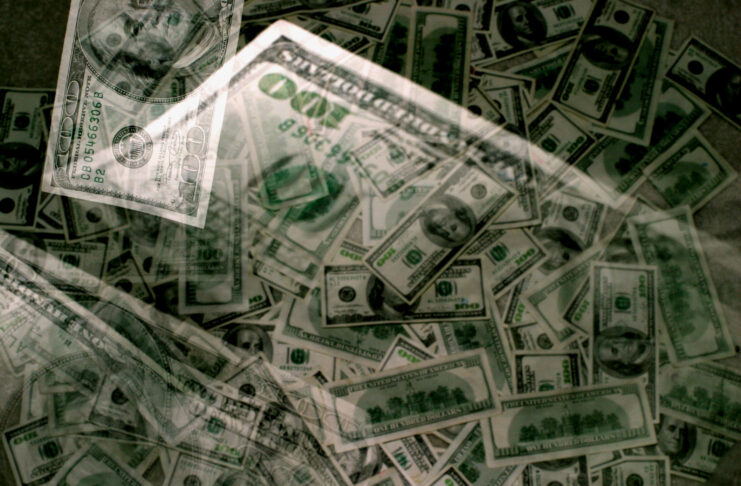While the White House and Congress continue their discussions over what to do about the federal debt ceiling, there's a parallel debate over when Uncle Sam might face a cash pinch – one so big and so critical it results in a default.
To be clear: sovereign debt defaults are extraordinarily bad, and aside from a technical default in the 1970s, the U.S. has always made its interest payments on time and in full.
But the dire consequences of a default has become a part of the discussion. Much of this is theater. But as this debate is happening in D.C., where absurdities and theatrical behavior are part of the landscape, even something as drastic as a default cannot be ruled out completely.
Should such a calamity occur, does that mean the U.S. stops paying the interest it owes on its trillions in sovereign debt? According to David Rivkin, Jr. and Lee Casey, no it doesn't, thanks to the Public Debt Clause of the 14th Amendment:
The Public Debt Clause isn't limited to Civil War debts. As the Supreme Court held in Perry v. U.S. (1935), it covers all sovereign federal debt, past, present and future. The case resulted from Congress's decision during the Great Depression to begin paying federal bonds in currency, including those that promised payment in gold. Bondholders brought an action in the Court of Claims demanding payment in currency equal to the current gold value of the notes. The justices concluded that Congress had violated the Public Debt Clause and that its reference to “the validity of the public debt” was broad enough that it “embraces whatever concerns the integrity of the public obligations.”
That means the federal government can't legally default. The Constitution commands that creditors be paid. If they aren't, they can sue for relief, and the government will lose and pay up.
Okay, great. Bondholders big and small look like they are covered – though in the worst-case scenario, they would likely still have to go to court to get what they would be owed.
But interest payments appear to be where the line of “must pay” debts ends. Everything else the government sends checks for – from wages to military personnel to Social Security checks would be at risk if Uncle Sam defaults.
None of those items, Rivkin and Kee write, are public debt that must be paid:
For constitutional purposes, promised benefits from Social Security, Medicare and other entitlements aren't even property, as the Supreme Court held in Flemming v. Nestor (1960), and Congress has as much authority to reduce them as to increase them.
Warning that a government default would have enormous repercussions for tens of millions of Americans, not to mention domestic and global markets, is warranted and necessary. Lumping sovereign debt into that mix isn't.
The feds will pay bondholders because the Constitution requires it. Everything else? Those are political decisions that are only as good as the pols who made them.
The opinions expressed in this article are those of the author and do not necessarily reflect the positions of American Liberty News.
READ NEXT: Illegals Caught Attempting To Eat Bald Eagle, What Happened Next Is Truly Unthinkable



coming Depression 2??